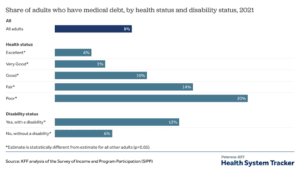Employers Turn to 'High-Performing' Physicians for Cost Savings – Bloomberg Law

Some of the largest companies in Wisconsin are hoping to save money on health care this year by setting up insurance plans that steer employees to primary care physicians who provide high-quality care for less money.
The half-dozen employers in eastern Wisconsin are expected to save more than 15% of $12,000 per employee in annual medical costs—about $10 million this year for the 5,000 employees who enrolled in the plans, Dave Ostendorf, chief actuary of plan administrator Centivo, said.
The companies include Robert W. Baird & Co., Northwestern Mutual, American Roller Co. LLC, and the Guardian Life Insurance Co.
The potential for savings if the program is adopted more widely is substantial. A recent study commissioned by Wisconsin’s employer-led Business Health Care Group showed that health plans in Wisconsin could save $382 million out of the $1.5 billion spent on treatments managed by primary care doctors if care was redirected to the higher-performing physicians, or if all physicians adopted the same treatment approaches used by the high performers, Ostendorf said in an interview.
Higher-performing physicians are defined as those who keep patients healthier at lower cost. Nearly 1,600 physicians, along with 60 hospitals, are contracted for the health program by Centivo.
Physicians participating in the plan were chosen based on data from the Wisconsin Health Information Organization, which collects claims data from Wisconsin health insurers, self-funded employers that pay their employees’ health-care costs directly, and Medicaid.
Twenty-four states have similar claims databases that could be used to develop health plans, and other states are considering implementing them. The databases could be used to develop similar types of health plans in other states, Ostendorf said.
Companies such as Walmart have set up programs helping their employees find affordable high-quality local providers, and Disney contracts with Orlando Health Network for providers. But Centivo says using claims databases to build networks is a groundbreaking step to reduce costs and improve quality.
“We are really looking for the holy grail—high-quality physicians who are cost-effective,” Ostendorf said. “Paying more doesn’t mean higher quality.”
Physicians who don’t meet cost and quality measures are encouraged to improve their performance, Ostendorf said. “We want to bring everybody into the high-performing bucket.”
‘Good Feedback’ at Baird
Milwaukee-based financial services firm Baird is offering the Centivo Partnership Plan as a pilot program to its approximately 1,500 eligible Wisconsin employees, Lisa Mrozinski, director of the firm’s Total Rewards program, said.
A small percentage of employees signed up, Mrozinski said. “So far we’re hearing good feedback about it,” she said. “I think people were attracted to having a primary care physician caring for you and directing your care.”
Partnership Plan enrollees must establish a relationship with a primary care physician in the network. “That is something that’s really important, especially with fragmented care; having somebody that really understands you, knows you, knows your history, just has a better understanding of the person holistically,” she said.
Ordinary services, such as mammograms, don’t need primary care referrals, but other services that require specialists do need referrals, she said. Specialists report back to the primary care physicians.
Baird also has offered two high-deductible health plans for many years, and premiums for the Partnership Plan fall between the two high-deductible plans, Mrozinski said. Under the Partnership Plan, instead of employees having to pay full medical charges until annual deductibles are met, services are covered with relatively small copayments.
The company didn’t adopt the plan “from a cost perspective,” and there may not be “big savings in 2022,” Mrozinski said. But “We believe that longer term this will continue to drive getting the right health care versus just getting any care, which will have an impact on our cost,” she said.
Some Providers Not Chosen
In recent months, Ascension Medical Group of Wisconsin, one of the hospital systems participating in the plan, has been talking to its staff about the program, including to providers who weren’t selected, Paul Mason, chief operating officer, said in a recent webinar on the program.
“A number of providers weren’t selected,” Mason said. “They maybe didn’t hit certain cost and quality measures. There’s room for improvement for that.”
For providers who were selected, “we can talk about their accountability now in this model,” as well as patient accountability, Mason said. The program is better “than just finding out that your patient, without your knowledge, went off and saw a GI specialist because they had a belly ache, or they went off to see a neurologist because they were having headaches,” Mason said.
“There’s so much that we can do in a model like this, where you know the patient has to come to you first,” Mason said. “It’s the relationship that primary care wants.”
In the program, hospital groups can keep referrals for specialists to those within their systems, Ostendorf said in the webinar. “If you take a cost-effective PCP, have them referring them when they need to refer to cost-effective specialists within their system, that really has a very strong outcome relative to the savings opportunity,” he said.
Ostendorf said Centivo is looking at expanding in the Madison area and into the north-central parts of the state. “We’re having additional conversations going on right now with provider groups.” Centivo also is looking at expanding the provider networks to include physician assistants and nurse practitioners, he said.



